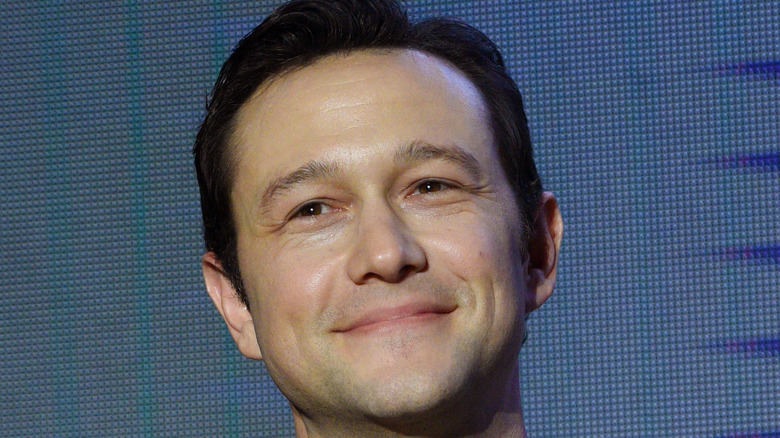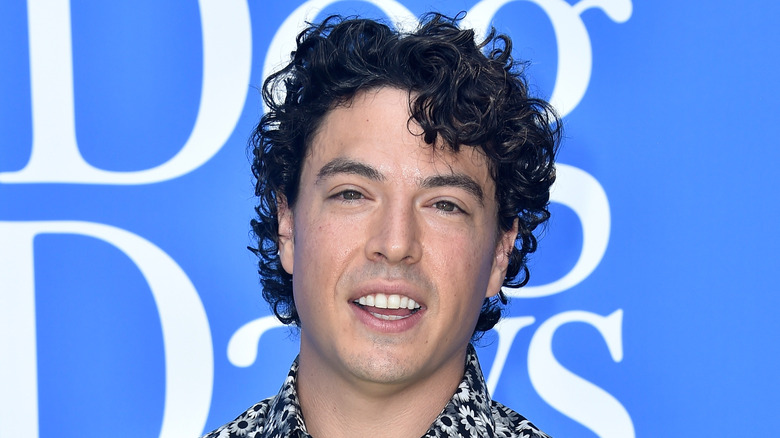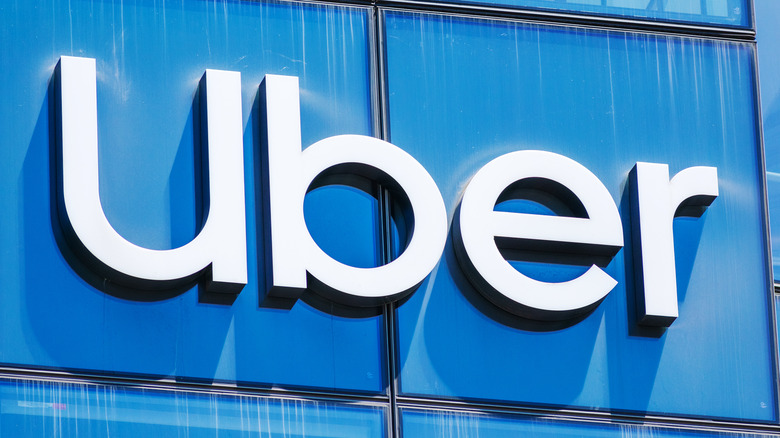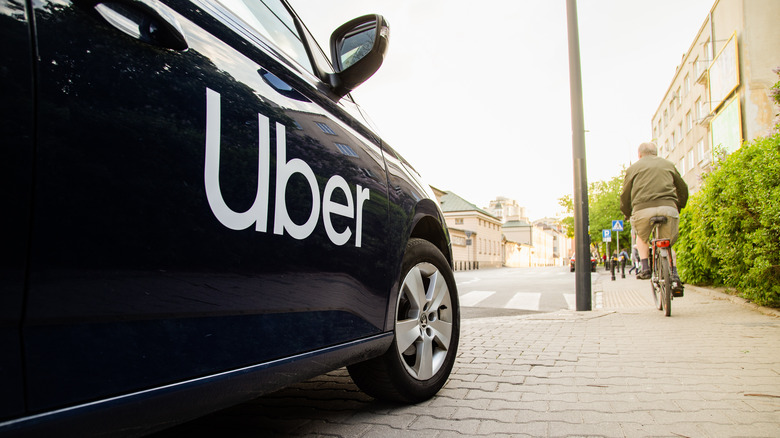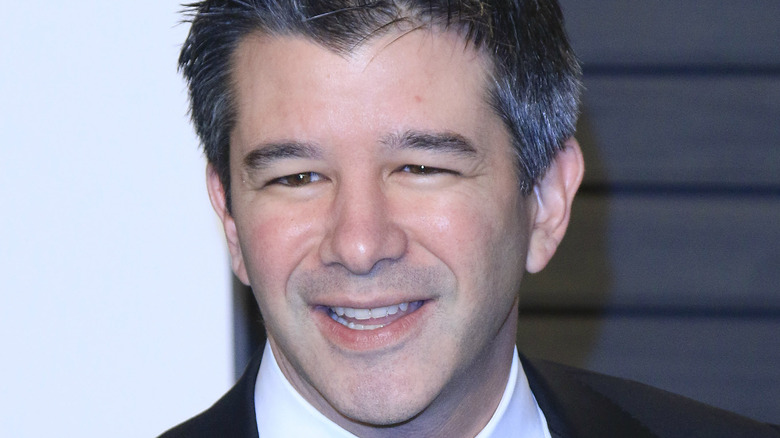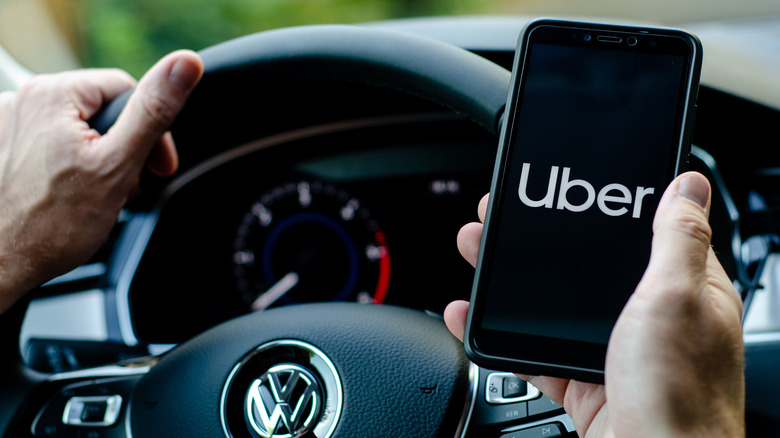Startling Moments From The First Episode Of 'Super Pumped' That Are Actually True
The Showtime series "Super Pumped" tells the dramatized true story of Uber, the controversial ride-sharing service that redefined what it means to catch a ride across town. The show stars Joseph Gordon-Levitt (pictured above) as Uber founder Travis Kalanick and Kyle Chandler as Billy Gurley, the venture capitalist that helped get the startup going. The series is based on New York Times' reporter Mike Isaac's book, titled "Super Pumped: The Battle for Uber."
According to Investopedia, Uber's true story begins in 2009. From the very start, the company grew rapidly. These days, catching an "Uber" is practically synonymous with catching a cab. When the company went public in 2019, the IPO was valued at more than $1 billion dollars — all without turning a profit. Since then, Uber's been plagued with scandal. Whenever true stories are adapted, some facts are left out, while other things are completely made up. Turns out, several key points in the first episode of "Super Pumped" are actually true.
Was Uber really Garett Camp's idea?
One pivotal figure in the early days of Uber was former StumbleUpon founder Garett Camp, played in "Super Pumped" by Jon Bass, according to Deadline. (Jon Bass is pictured above). Uber's true story did begin when the actual Kalanick met Camp in 2008 at a French tech conference called LeWeb, as Investopedia reports. At that point, Camp pitched his idea to Kalanick, who was quickly along for the ride. In the show "Super Pumped," Kalanick takes all the credit for the idea, cutting out Camp's contribution. Is this true?
According to Business Insider, Kalanick was a bit hesitant to get involved with the company at first, and the initial idea for the startup truly did come from Camp. So as it's presented in "Super Pumped," that much at least is pretty accurate. Unlike the series, though, there's really no evidence that Kalanick double-crossed Camp completely to credit Billy Gurley instead.
Was the app really called something different at first?
Not long after Uber first launched in San Francisco in 2009, the wildly-popular disruptive ride-sharing app tangled with San Francisco Municipal Transportation Agency over fees, employment law, and other types of cab-service permits. This would be only the first of many such clashes. By 2014, drivers themselves were protesting Uber's expansion all over Europe, according to Investopedia. According to Showtime's show "Super Pumped," company founders skirted this particular issue in San Francisco by simply changing the name of their app. Did this happen?
Yes, just as "Super Pumped" says, Uber really was called UberCab, according to Vox. And once the SF Municipal Transportation Agency began making noise about the new service (also true) one company executive back then did suggest dropping Cab from the name to go with just "Uber" instead, called it a "ride-sharing service." As far as Uber's San Francisco legal troubles, that name change did do the trick, as Business Insider reports.
Did Uber really fake those petitions?
One other tactic Uber employed was to bury the city of San Francisco with petitions reflecting how much those in the city loved the ride-sharing app, which the company hoped would encourage the municipal government to drop its objections to the service's rapid expansion, per Business Insider. At least that's how it's presented in the show "Super Pumped." It's also revealed that most of those petitions were fake. Did Uber founders really dump a whole load of fake petitions at San Francisco's city hall?
That last bit — that it was in San Francisco where the fake petitions were submitted to the city government — isn't actually true. According to Riverfront Times, a St. Louis weekly newspaper, it was in St. Louis where something similar happened, instead. Why would a tech startup like Uber use actual paper petitions rather than something more modern? That's a good question. Turns out that many of the boxes, ostensibly filled with paper copies of letters, actually contained just a bottle of water, per RFT.
Were Uber employees really jerks?
In the opening moments of "Super Pumped," company founder Travis Kalanick, played by Joseph Gordon-Leavitt, is seen conducting a job interview, asking potential Uber employees if they're "a*******." While that trait might count against an applicant at any other company, this question is presented in the show as a hire-able quality, and in 2018, Uber was rocked by a several-million-dollar lawsuit brought by former employees over a hostile work environment, among other offenses (via Investopedia). This even led to the actual Kalanick's eventual ouster (pictured above). But if Uber really did hire only a*******s early on, what did they really expect?
While it is true that Uber in its infancy did aim to foster a hyper-competitive and aggressive workplace, it's unlikely that Kalanick ever asked anyone in a job interview the exact question that's posed to them in the show. Broadly speaking, though, it's an accurate characterization of what Uber wanted their company culture to be like. As one former Uber employee told The Guardian, company values were used to excuse "bad behavior." In 2017, Arianna Huffington was brought on board to right the ship, and she even said the company was full of "brilliant jerks," per Business Insider. That's close enough to "a*******" for us.
Was that 'safe rides fee' really a scam?
What's also presented in "Super Pumped" is that alongside labor issues, price gouging controversies, data privacy concerns, and run-ins with local taxi and cab regulatory agencies and unions, Uber had serious safety issues in the company's early days, and that's true, according to Gizmodo. Per Business Insider, an idea was floated within Uber to charge riders a $1 safety fee, ostensibly to make rider's experience less risky. But where did that money go, and did that "safety fee" really work?
Here's another instance when Showtime's new show gets it right. Those "safe rides fees" really were used by Uber to manage the early public relations controversies surrounding the safety of using the service. What's also true is that $1 per ride mostly padded the company's bottom line and did little to help users reach their destination safe and sound, according to Business Insider. Real-life Uber has several multi-million-dollar class action lawsuits for the offense, via The Guardian.
